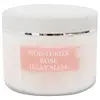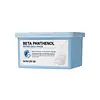What's inside
What's inside
 Key Ingredients
Key Ingredients

 Benefits
Benefits

 Concerns
Concerns

 Ingredients Side-by-side
Ingredients Side-by-side

Water
Skin ConditioningCarbomer
Emulsion StabilisingPropanediol
SolventAcrylates/C10-30 Alkyl Acrylate Crosspolymer
Emulsion StabilisingHydrolyzed Adansonia Digitata Extract
EmollientHoney Extract
HumectantHyaluronic Acid
HumectantTriethanolamine
BufferingChlorphenesin
AntimicrobialPPG-1-PEG-9 Lauryl Glycol Ether
EmulsifyingPEG-40 Hydrogenated Castor Oil
EmulsifyingCoceth-7
EmulsifyingRosa Gallica Flower Powder
Skin ConditioningParfum
MaskingAscorbic Acid
AntioxidantAloe Barbadensis Leaf Extract
EmollientRuscus Aculeatus Root Extract
AstringentHydrolyzed Yeast Protein
Skin ConditioningChondrus Crispus Extract
Skin ConditioningButylene Glycol
HumectantAmmonium Glycyrrhizate
MaskingPanthenol
Skin ConditioningEscin
TonicCentella Asiatica Extract
CleansingCalendula Officinalis Flower Extract
MaskingSodium Hyaluronate
HumectantWater, Carbomer, Propanediol, Acrylates/C10-30 Alkyl Acrylate Crosspolymer, Hydrolyzed Adansonia Digitata Extract, Honey Extract, Hyaluronic Acid, Triethanolamine, Chlorphenesin, PPG-1-PEG-9 Lauryl Glycol Ether, PEG-40 Hydrogenated Castor Oil, Coceth-7, Rosa Gallica Flower Powder, Parfum, Ascorbic Acid, Aloe Barbadensis Leaf Extract, Ruscus Aculeatus Root Extract, Hydrolyzed Yeast Protein, Chondrus Crispus Extract, Butylene Glycol, Ammonium Glycyrrhizate, Panthenol, Escin, Centella Asiatica Extract, Calendula Officinalis Flower Extract, Sodium Hyaluronate
Water
Skin ConditioningButylene Glycol
HumectantNiacinamide
SmoothingGlycerin
HumectantPanthenol
Skin ConditioningPropanediol
SolventDipropylene Glycol
HumectantOlea Europaea Fruit Oil
MaskingGlycereth-26
HumectantPolyglyceryl-10 Laurate
Skin ConditioningHydroxyacetophenone
AntioxidantCaprylyl Glycol
EmollientXanthan Gum
EmulsifyingEthylhexylglycerin
Skin Conditioning1,2-Hexanediol
Skin ConditioningAcrylates/C10-30 Alkyl Acrylate Crosspolymer
Emulsion StabilisingArginine
MaskingPolyglyceryl-3 Methylglucose Distearate
EmulsifyingGlyceryl Stearate Se
EmulsifyingPantolactone
HumectantMethyl Glucose Sesquistearate
EmollientDipotassium Glycyrrhizate
HumectantAllantoin
Skin ConditioningCitric Acid
BufferingSodium Citrate
BufferingSodium Hyaluronate
HumectantDiethylhexyl Sodium Sulfosuccinate
CleansingXylitylglucoside
HumectantMusa Sapientum Fruit Extract
Skin ConditioningAnhydroxylitol
HumectantRosa Damascena Flower Water
MaskingPyrus Communis Fruit Extract
Skin ConditioningPrunus Domestica Fruit Extract
MoisturisingXylitol
HumectantCucumis Melo Fruit Extract
Skin ConditioningGlyceryl Glucoside
HumectantHedera Helix Leaf/Stem Extract
AntimicrobialOctyldodecanol
EmollientEctoin
Skin ConditioningHydrogenated Lecithin
EmulsifyingBeta-Sitosterol
Emulsion StabilisingGlucose
HumectantSodium Palmitoyl Sarcosinate
CleansingLactobacillus Ferment Lysate
Skin ConditioningHydrolyzed Sodium Hyaluronate
Skin ConditioningDimethylsilanol Hyaluronate
HumectantHydrolyzed Hyaluronic Acid
HumectantHyaluronic Acid
HumectantPotassium Hyaluronate
Skin ConditioningHydroxypropyltrimonium Hyaluronate
Sodium Hyaluronate Crosspolymer
HumectantSodium Hyaluronate Dimethylsilanol
HumectantCeramide NP
Skin ConditioningSodium Acetylated Hyaluronate
HumectantAcetyl Tetrapeptide-40
Skin ConditioningDisodium EDTA
Water, Butylene Glycol, Niacinamide, Glycerin, Panthenol, Propanediol, Dipropylene Glycol, Olea Europaea Fruit Oil, Glycereth-26, Polyglyceryl-10 Laurate, Hydroxyacetophenone, Caprylyl Glycol, Xanthan Gum, Ethylhexylglycerin, 1,2-Hexanediol, Acrylates/C10-30 Alkyl Acrylate Crosspolymer, Arginine, Polyglyceryl-3 Methylglucose Distearate, Glyceryl Stearate Se, Pantolactone, Methyl Glucose Sesquistearate, Dipotassium Glycyrrhizate, Allantoin, Citric Acid, Sodium Citrate, Sodium Hyaluronate, Diethylhexyl Sodium Sulfosuccinate, Xylitylglucoside, Musa Sapientum Fruit Extract, Anhydroxylitol, Rosa Damascena Flower Water, Pyrus Communis Fruit Extract, Prunus Domestica Fruit Extract, Xylitol, Cucumis Melo Fruit Extract, Glyceryl Glucoside, Hedera Helix Leaf/Stem Extract, Octyldodecanol, Ectoin, Hydrogenated Lecithin, Beta-Sitosterol, Glucose, Sodium Palmitoyl Sarcosinate, Lactobacillus Ferment Lysate, Hydrolyzed Sodium Hyaluronate, Dimethylsilanol Hyaluronate, Hydrolyzed Hyaluronic Acid, Hyaluronic Acid, Potassium Hyaluronate, Hydroxypropyltrimonium Hyaluronate, Sodium Hyaluronate Crosspolymer, Sodium Hyaluronate Dimethylsilanol, Ceramide NP, Sodium Acetylated Hyaluronate, Acetyl Tetrapeptide-40, Disodium EDTA
Ingredients Explained
These ingredients are found in both products.
Ingredients higher up in an ingredient list are typically present in a larger amount.
Acrylates/C10-30 Alkyl Acrylate Crosspolymer is a synthetic polymer. It is used to thicken and improve the texture of products. Due to its properties, it can prevent water and oil ingredients from separating.
Butylene Glycol (or BG) is used within cosmetic products for a few different reasons:
Overall, Butylene Glycol is a safe and well-rounded ingredient that works well with other ingredients.
Though this ingredient works well with most skin types, some people with sensitive skin may experience a reaction such as allergic rashes, closed comedones, or itchiness.
Learn more about Butylene GlycolHyaluronic acid is naturally found in healthy skin. It is a humectant, meaning it draws moisture to your skin.
This ingredient helps hydrate, soothe, and protect the skin.
What makes hyaluronic acid so hydrating? It has the capacity to bind or hold large amounts of water.
Fun fact: It is already naturally found in our bodies, such as the fluids of our eyes and our joints.
Studies find this ingredient to have anti-inflammatory and anti-microbial properties. This can help speed up wound-healing.
Hyaluronic acid can be irritating if the molecule has a low-molecular weight, or if the molecules are small.
One study found low-molecular weight hyaluronic acid to be pro-inflammatory, meaning some people may experience irritation. This is because our bodies use hyaluronic acid in the wound-healing process to signal to our bodies, via irritation, that something needs healing.
The same study found high-molecular weight hyaluronic acid to be anti-inflammatory.
These are some other common types of Hyaluronic Acid:
Learn more about Hyaluronic AcidPanthenol is a common ingredient that helps hydrate and soothe the skin. It is found naturally in our skin and hair.
There are two forms of panthenol: D and L.
D-panthenol is also known as dexpanthenol. Most cosmetics use dexpanthenol or a mixture of D and L-panthenol.
Panthenol is famous due to its ability to go deeper into the skin's layers. Using this ingredient has numerous pros (and no cons):
Like hyaluronic acid, panthenol is a humectant. Humectants are able to bind and hold large amounts of water to keep skin hydrated.
This ingredient works well for wound healing. It works by increasing tissue in the wound and helps close open wounds.
Once oxidized, panthenol converts to pantothenic acid. Panthothenic acid is found in all living cells.
This ingredient is also referred to as pro-vitamin B5.
Learn more about PanthenolPropanediol is an all-star ingredient. It softens, hydrates, and smooths the skin.
It’s often used to:
Propanediol is not likely to cause sensitivity and considered safe to use. It is derived from corn or petroleum with a clear color and no scent.
Learn more about PropanediolSodium Hyaluronate is hyaluronic acid's salt form. It is commonly derived from the sodium salt of hyaluronic acid.
Like hyaluronic acid, it is great at holding water and acts as a humectant. This makes it a great skin hydrating ingredient.
Sodium Hyaluronate is naturally occurring in our bodies and is mostly found in eye fluid and joints.
These are some other common types of Hyaluronic Acid:
Learn more about Sodium HyaluronateWater. It's the most common cosmetic ingredient of all. You'll usually see it at the top of ingredient lists, meaning that it makes up the largest part of the product.
So why is it so popular? Water most often acts as a solvent - this means that it helps dissolve other ingredients into the formulation.
You'll also recognize water as that liquid we all need to stay alive. If you see this, drink a glass of water. Stay hydrated!
Learn more about Water